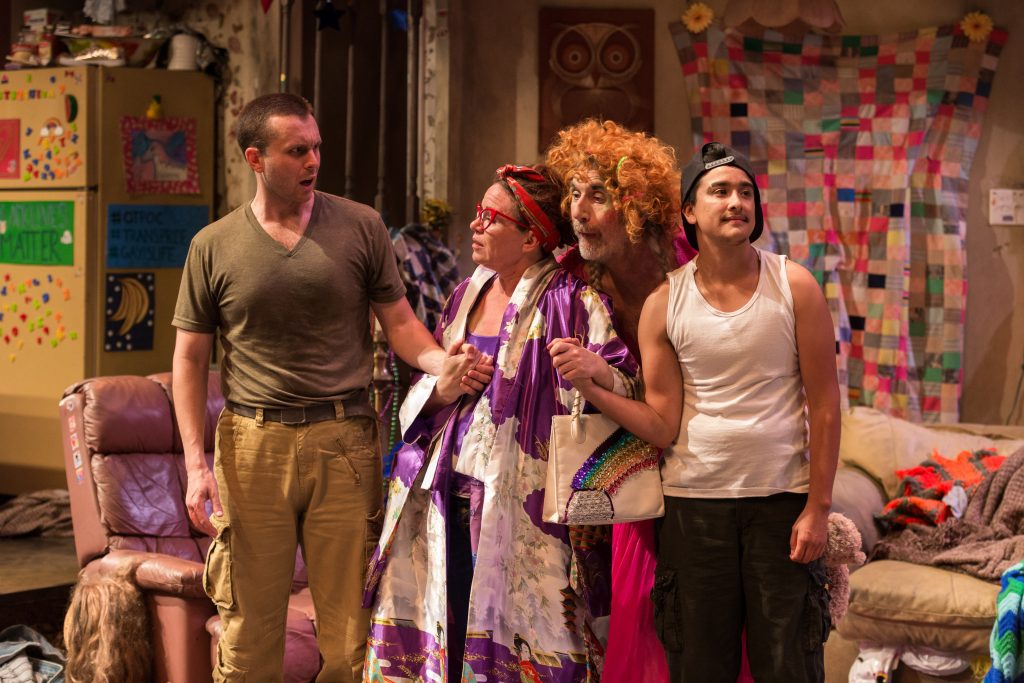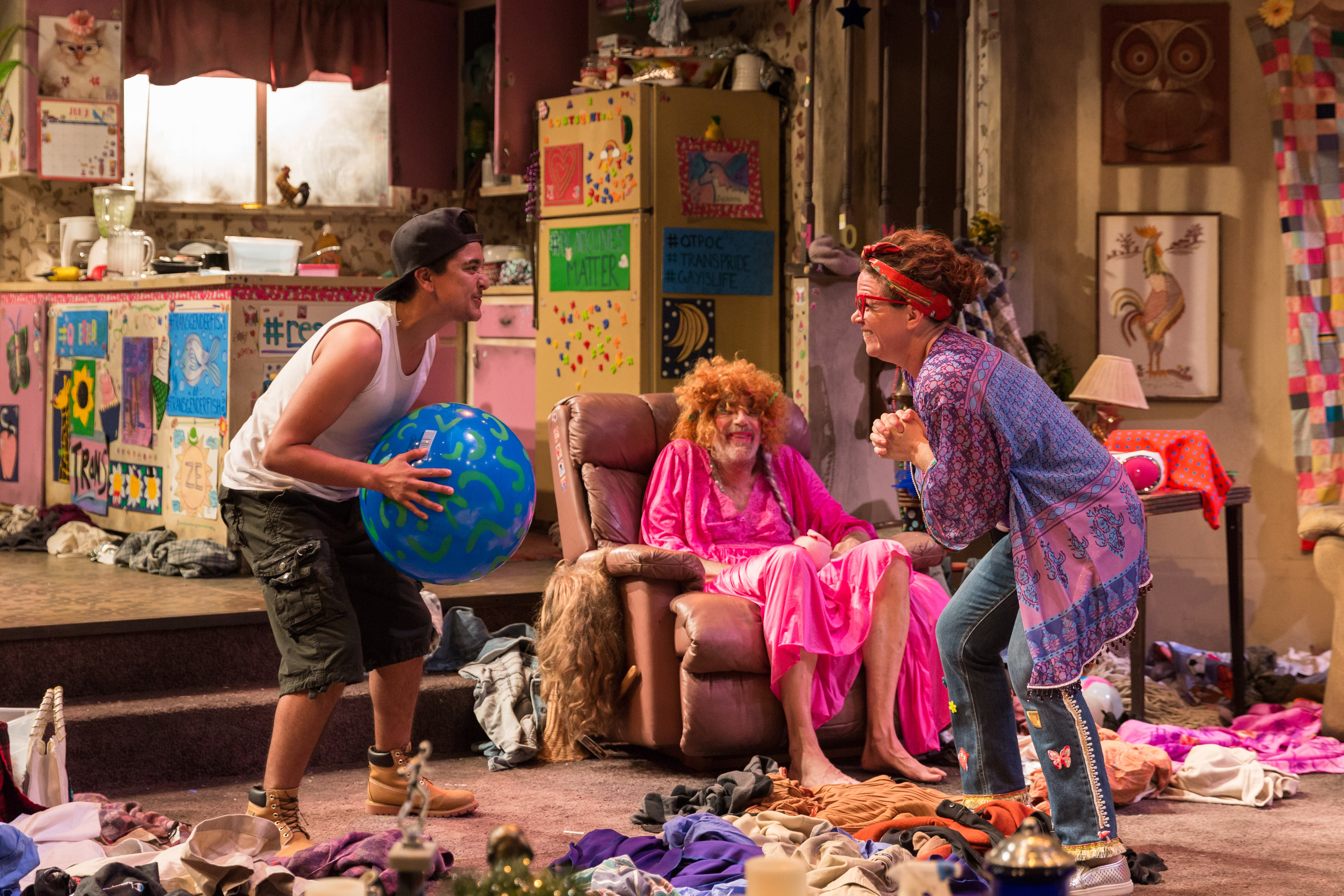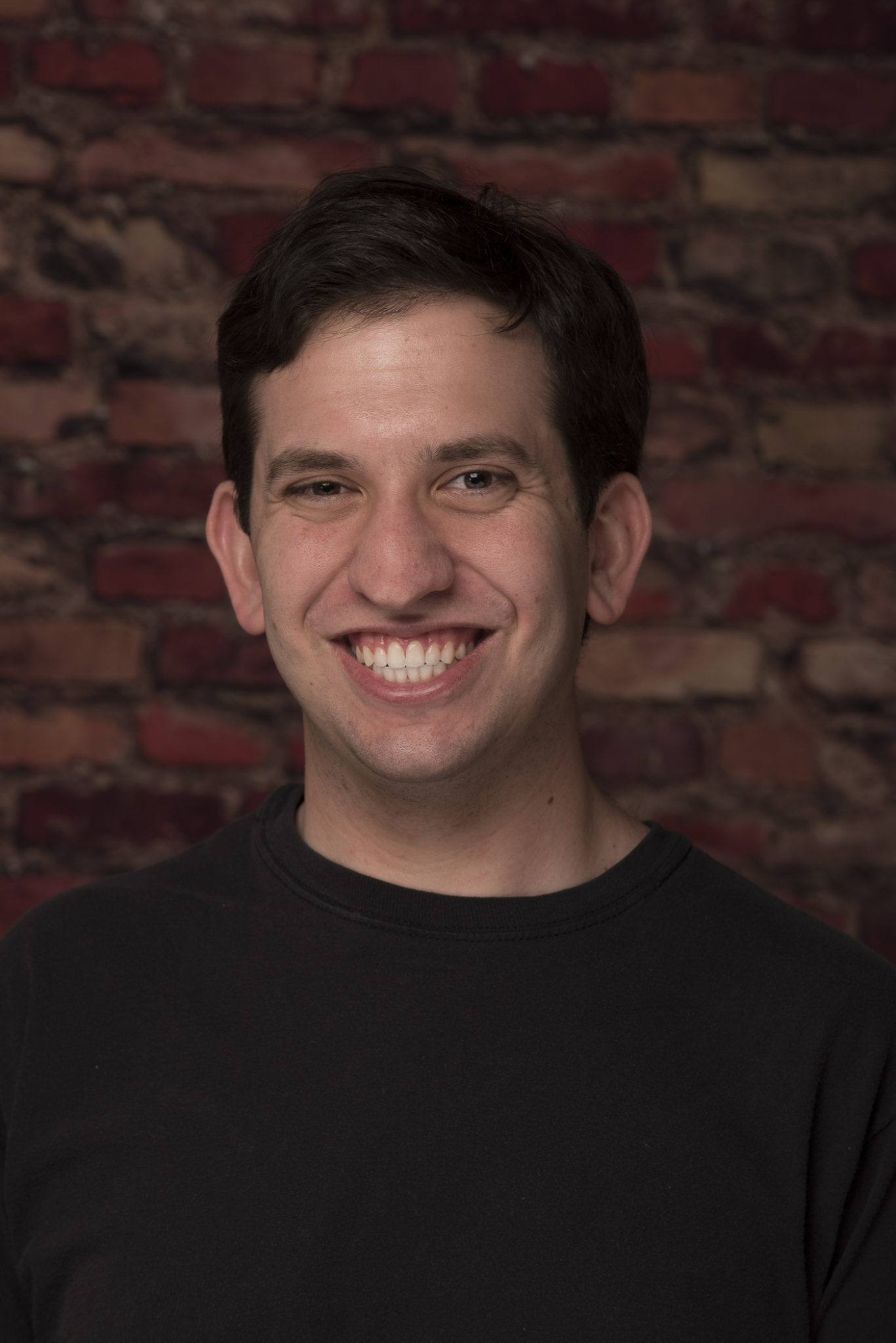Family Reunion at the Cygnet

Dylan Seaton, DeAnna Driscoll, Joel Castellaw and Avi Roque. (Photos courtesy of Karli Cadel Photography.)
The issues faced by the central family in the play are certainly no laughing matter. Drug addiction, family abuse and issues of sexuality are just a few of the topics addressed by the playwright.
Following his discharge, Isaac (Dylan Seaton), a marine, returns to his California home, is horrified at the changes in his family. His father Arnold (Joel Castellaw) has suffered a stroke, his mother Paige (DeAnna Driscoll) turned the house into a mess, and his sister is now the transgender Max (Avi Roque). Overwhelmed by these changes, Isaac has trouble in coming to terms with his new family situation.
For the first 15-20 minutes of the play, I had trouble warming up to Mac’s writing style. Mac takes far too much time in showcasing Isaac’s confusion, fear and anger and, while this is initially amusing, it becomes a bit tiring after some time.
Associate Artistic Director Rob Lutfy’s production starts to pick up when Isaac starts talking to Max. In a show that depicts various conflicts, the two share what is arguably the most positive relationship in the tale.
While Isaac is initially taken aback by the changes in Max, he soon does his best to be a supportive and caring older brother. From that point on, the humor and serious moments in the play become a lot more effective.
Lutfy’s interpretation showcases the ensemble. Seaton’s performance as Isaac is a little too extreme early on, as he spends much of the first part of the show screaming and yelling out his lines. Eventually, he does become more comfortable in his role and there are some haunting moments where he conveys Isaac’s sometimes-uncontrollable rage.
Castellaw’s acting is mostly physical, and he has only a few words of dialogue in playing the nightgown-wearing Arthur. However, he gives us a disturbing taste of the father’s earlier vicious behavior.
More sympathetic are the two people that have cared for Arthur. The Latinx Trans/Non-Binary Roque believably plays Max as someone who seems assertive but lacks self-confidence. Roque emotionally depicts Max’s struggles, and is very funny whenever the character tries to convey stereotypically masculine behavior.
Often hysterical to watch, Driscoll brings an outrageous sense of humor to the role of Paige, without ignoring her complicated personality. She can be loving and upbeat, but there are moments when she makes Paige intense and cold.
All the stars move around Sean Fanning’s scenery in a humorous fashion. His set is a hoarder’s dream house with piles of clothes and random objects (props courtesy of Bonine Durben) scattered around.
Other technical elements, such as R. Craig Wolf’s lighting and Mason Pilevsky’s audio, are subtle and don’t draw too much attention away from the action. An exception to this is from Pilevsky and his funny use of “There She Is, Miss America,” during an important scene played with puppetry.

Avi Roque, Joel Castellaw and DeAnna Driscoll.
The only material that might arguably be considered too insensitive is how a defenseless Arnold’s condition is largely played for laughs. At the same time, Mac shows how much of a cruel person the patriarch was before his stroke.
Given today’s social climate, one of the most difficult issues posed by Mac asks is whether people should be respectful to men who are helpless, even if they have committed unforgivable acts towards women in the past. Mac wisely doesn’t give the audience a simple answer.
Working with a strong cast, Lutfy delivers an oddly comical and intelligent play about family dynamics, and Mac’s play leaves a huge impact.
DOWNLOAD CAST AND CREDITS HERE
[box] Show times are Wednesdays at 7:30 p.m, Thursdays at 7:30 p.m, Fridays at 8:00 p.m, Saturdays at 3:00 p.m and 8:00 p.m and Sundays at 2:00 p.m and 7:00 p.m. [/box]

A fan of theatre from a young age, David Dixon began writing reviews while in middle school, for Union Tribune’s Rated G column and sdcnn.com. He was the Entertainment Editor for SDSU’s The Daily Aztec. Currently, he contributes to San Diego Community News Network, a regional reviewer for Talkin’ Broadway, an interviewer for San Diego Theatre Reviews and has won several San Diego Press Club Excellence in Journalism Awards. David is a San Diego Theatre Critics Circle member, an American Theatre Critics Association member & Regional Theatre Tony Award voter.


